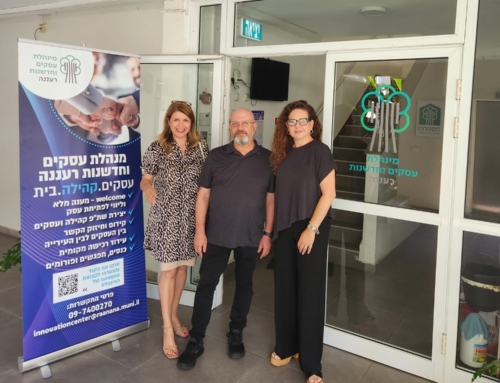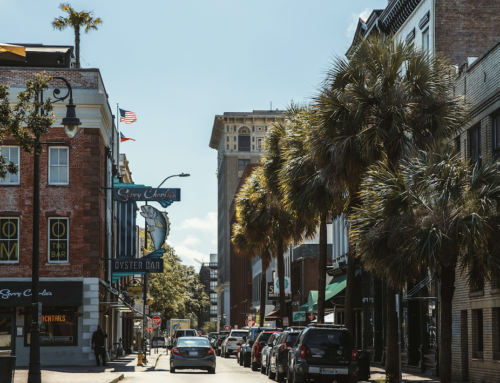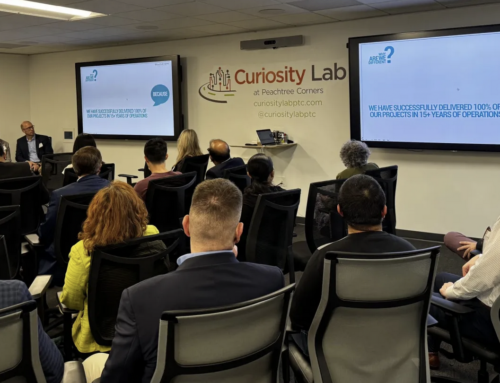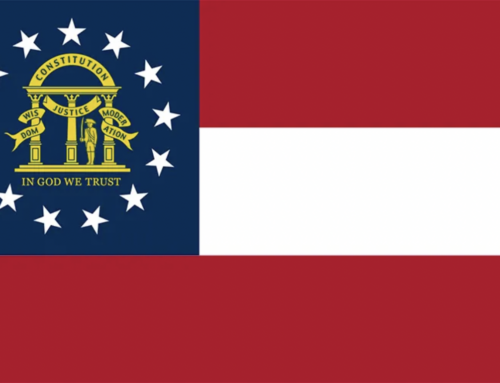For Global Atlanta’s series on Atlanta as a Global Platform, they are exploring the reasons international companies choose Atlanta and how they leverage the economic-development community here to reach other international markets.
Jorge Fernandez, consultant at The Pendleton Group, provided some great commentary on how building and maintaining networks is inherent to the work of diplomats. Read the full article here: https://www.globalatlanta.com/atlanta-as-a-global-platform-two-ambassadors-on-how-relationship-diplomacy-makes-the-difference/
…
Atlanta as a Global Platform: Two Ambassadors on How ‘Relationship Diplomacy’ Makes the Difference
In the article kicking off our series on Atlanta as a Global Platform, we explored the reasons international companies choose Atlanta and how they leverage the economic-development community here to reach other international markets.
For this edition, we’re focusing on global relationships, and how those well-versed in the art of international engagement can build and deploy their networks for the benefit of companies.
We’re invested in this at The Pendleton Group, as our latest associates are former diplomats who have developed special expertise in building complementary relationships between Atlanta and their countries and spheres of influence.
Louise Blais served as Canada’s consul general in Atlanta before taking up a post as her country’s ambassador to the United Nations, after which she returned for another brief stint as acting consul general in the Southeast U.S. ending earlier this year.
Charles Shapiro’s long career in the U.S. State Department included a 2002-04 period as U.S. ambassador to Venezuela; the Atlanta native returned to his hometown to serve as president of the World Affairs Council of Atlanta for seven years until his retirement last year.
Peter Zimmerli, former consul general of Switzerland in Atlanta, joined the Pendleton team after completing his final career posting in Atlanta earlier this year. His addition extends our consultancy’s reach to three continents, as he will facilitate economic development initiatives for Swiss companies in Atlanta from his home base of Olten, Switzerland.
Each associate is already working on inbound investment projects in Georgia, with their existing matrix of relationships providing the “glue” that can help these projects “stick” and flourish.
We asked Ms. Blais and Mr. Shapiro about why Atlanta is a “relationship platform” for international investment, as well as their advice for international companies considering the region for future investment or expansion:
In your former role as a diplomat, how did you see Atlanta positioning on the global stage?
Ms. Blais: Increasing visibility
When I became Consul General in Atlanta in 2014, this market was not well understood by my government and Canadian businesses. Canadians are now paying attention to the political landscape in the state, are hearing about opportunities in the media and are being guided in greater numbers by site selectors based on positive evidence and analysis.
Mr. Shapiro: A regional global center
The metro Atlanta area and the entire region from Savannah to Birmingham to Chattanooga to Greenville, S.C., is booming, and the world is coming here – not for iced tea and peach cobbler, but because there are huge opportunities here. Other regional centers across the U.S. are competing for the same business. Our position on the economic development stage is not in comparison with Dallas or Chicago, but with the world.
How do you define the international community in Atlanta? How important is the international community’s role in the overall health of the city’s/state’s economy?
Ms. Blais: Collaboration
Atlanta’s energetic and organized Consular Corps is especially strong because of their collaboration. They are also well-connected to the City of Atlanta, county governments and chambers of commerce, plus several vibrant bilateral chambers. The Atlanta International School is also popular among the diplomatic and business expat communities.
Mr. Shapiro: Public, private, academia and civil society
The foreign consuls general, trade representatives and foreign companies operating here are just a part of our international community. It also includes U.S. corporations that operate globally; universities and research centers; a global health cluster built around the Centers for Disease Control and Prevention and the medical schools; nonprofits like the Carter Center, CARE and MAP International; substantial immigrant communities and, of course, Global Atlanta and my beloved World Affairs Council. We all discovered during the COVID shutdown and the global supply chain freeze that virtually every business and certainly every consumer in the U.S. is part of the international community.
Atlanta’s airport, ports, Fortune 500 network, etc. are primary reasons for an international company to locate here. But what are some of the more emotional or relationship-based reasons you think companies choose Atlanta over other U.S. cities?
Ms. Blais: Affordability and critical mass
Until recently, affordable cost of living was a key factor. Yet, despite the recent price hike and housing crunch, Atlanta is not showing signs of slowing down in terms of attracting foreign direct investment. Why? Well, Atlanta can now build on a decade of leveraging this affordability that attracted marquee companies such as Mercedes-Benz USA to locate their headquarters in the city. Now, there is a resilient critical mass building on itself, like a snowball down a hill, as we say in Canada!
Also crucial in the equation are Atlanta’s top universities such as Emory University and Georgia Institute of Technology that play a big role in building ecosystems of excellence in health sciences, high-tech and logistics.
Mr. Shapiro: Business, culture and morals
International companies are here for the same reason U.S. companies locate here: business opportunity. But they also want to locate here because there are other foreign companies here, because they can find workers with appropriate job skills, because their expat staff is welcome and safe and because they can educate their children here, including at weekend schools that ensure their kids don’t fall behind in their native languages.
In addition, Atlanta has a special moral history that is part of what we are. Many international companies value and support the Martin Luther King Jr. Center and the Carter Center, which is part of their decision when they weigh Atlanta against another location.
What makes Atlanta’s economic development community special?
Ms. Blais: Pro-business mindset
A key asset for Atlanta is the pro-business mindset of public officials. All levels of governments work together, from the governor’s office and the Georgia Department of Economic Development to county and city levels. Investors are given efficient and friendly service and are made to feel that their investment is welcomed and their needs are deeply valued.
Mr. Shapiro: Cooperative government
The ability – across multiple administrations – of the mayor of Atlanta and the governor of Georgia to put political differences aside and cooperate to attract business is impressive.
What factors do you think convince companies and/or organizations to stay and thrive in Atlanta?
Ms. Blais: Pace of life
The pace of life in Atlanta is close to the perfect balance between getting work done but also leaving time for family and leisure.
Mr. Shapiro: Welcoming environment
We can nurture the welcoming environment, but companies thrive because they are good at their business.
Which industry clusters and respective ecosystem organizations in Atlanta help to further access to and knowledge of new international markets?
Ms. Blais: Innovation hubs attract VC
There are too many to mention, but Tech Square in downtown Atlanta and Curiosity Lab at Peachtree Corners are innovation hubs that have been adept at attracting big, established companies as well as start-ups by providing world-class technological environments where happy business collisions happen every day. And now, venture capital has followed this exploding innovation and is developing as a solid sector in Atlanta.
Mr. Shapiro: State, federal and university assistance
The Georgia Department of Economic Development does great work and has 12 offices in strategic markets around the world. The business schools at Georgia State University, Kennesaw State University, Georgia Tech, Emory, University of Georgia and Mercer University help businesses identify new markets around the world. The U.S. Export Assistance Center in Atlanta does extraordinary work supporting SMEs who want to explore new overseas markets for their goods and services and will do everything from reviewing your website to see if it’s ready for an international audience to actually setting up meetings with prospective customers in a specific country.
Do you feel there is a “give and take” element to being part of the Atlanta international business community? If so, what are your thoughts on the importance of contributing to the broader cluster or industry sector here to help other like-minded companies?
Ms. Blais: Corporate giving
I think the Germans have done a great job at sharing best practices and intel from established companies to other German prospects or newcomers to the market. I also think that it should be paramount for foreign companies to invest themselves further into civic activities. In Asian, European and even Canadian culture, corporate giving is not quite at the same level back home. Governments play a larger role funding social programs. But, in the U.S. and in Atlanta, corporate sponsorship is at the center of a thriving society. I would encourage foreign companies to think about how they participate more directly to the success of Atlanta, not just economically but also socially.
Mr. Shapiro: Supportive sectors
I find that Atlanta companies within the same sector are surprisingly supportive of each other. Obviously, they don’t give away trade secrets, but they are surprisingly collaborative.
What advice would you give a newcomer company about integrating into Atlanta’s networks and accessing the appropriate relationships and resources (service providers, professional organizations, governmental or quasi-governmental organizations, etc.) to further their international goals?
Ms. Blais: Use government resources and consultancy advice
As friendly as the city is to newcomers, I recommend to companies wanting to enter the market to do two things: 1. Contact their consulate general and/or government trade office, and 2. Consider hiring a local firm to help navigate the unavoidable complexities of dealing with local regulations and culture. A firm, whether a site selector or consultancy like The Pendleton Group, can help save time, make better-informed decisions, and help avoid costly mistakes or missed opportunities.
As for Atlanta-born companies, especially SMEs that are women- or minority-led that want to explore export markets, I recommend inquiring with the U.S. federal government to see what programs might be available to assist them. And, if they are considering expanding, then they should reach out to the foreign missions in Atlanta for advice and guidance. The Canadian Consulate has an Invest Canada officer available to do just that, and it’s free to the client. But again, a consultancy firm with a global footprint can accompany companies, big and small, to provide precious advice and connections during what is a very sensitive transition in the company’s growth plan.
Mr. Shapiro: Join business chambers and international organizations
I strongly recommend that newly arrived international companies join the Metro Atlanta Chamber of Commerce, their local or county business chamber and the binational chamber of their home country. I also urge them to find a civic organization that meshes with their corporate goals so they can help build the community where they do business and where their employees live. And of course, every company, new and existing, should join the World Affairs Council of Atlanta in order to help Atlanta and Atlantans think globally.
–
The Pendleton Group is available to assist international and domestic companies in making the decision to locate, expand or use Atlanta as a platform for reaching international markets. Visit www.pendletonatlanta.com for more information.
Contact Ms. Blais at lblais@pendletonatlanta.com or Mr. Shapiro at cshapiro@pendletonatlanta.com.










